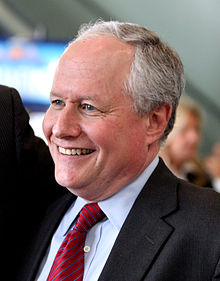Christian Zionism : The Real Threat to The World Peace
Christian Zionism Introduction Donald Trump, the US president recently announced his decision to shift US embassy to Jerusalem. This unjust decision is against the UN resolutions and stand of community of nations across the globe. This has created turbulence among the... [Continue reading...]
The Idea of Israel: A History of Power and Knowledge by Ilan Pappe: A Summary by Colin Chapman
Even in the most chaotic and violent moments of this new historical process, world opinion has not absolved Israel from its continued oppression of the Palestinians. Israel is seen more and more as a colonialist state that survived the twentieth century... [Continue reading...]
The Zionist Cuckoos in Christianity’s Nest
“The question is, are we seriously to believe that an all-powerful supernatural being has chosen and elevated one group of humans to a position of supremacy above all others, and has approved the use of any mean, including murder, brutal eviction... [Continue reading...]
Christian Zionism: The New Heresy that Undermines Middle East Peace
At least one in four American Christians believe it is their biblical responsibility to support the nation of Israel. This view is known as Christian Zionism. The Pew Research Center put the figure at 63 per cent among white evangelicals. Christian... [Continue reading...]
Unholy Alliance: Christian Zionists and the Israeli/Palestinian Conflict : By Micheal Welton
The establishment of political links between American Christian Zionists and the Israeli government and its Jewish lobbies is one of the most remarkable developments in recent history. The turning point for the American Christian Right was Israel’s occupation of Arab lands... [Continue reading...]
To Whom Does the Land of Palestine Belong?
In January of 1997, an Israeli soldier opened fire on Arab civilians in the city of Hebron in occupied Palestine, killing some and wounding others. His motive was to prevent the return of Israeli-occupied lands to the Arabs. This soldier... [Continue reading...]
God’s Land Grant to the Jewish People – Conditional or Unconditional? By Thomas Williamson
It is a common belief among American fundamentalist Christians, that the covenant by which God gave the land of Palestine to the Jews was an unconditional covenant. If true, this would mean that the Jewish people would retain their divine title... [Continue reading...]
Jerusalem latest: Europe rejects Netanyahu’s wish for Europe to follow Trump’s lead on Israel’s capital | The Independent
Israel’s Prime Minister Benjamin Netanyahu has been rebuffed in meetings in Brussels after urging European foreign ministers to follow the US’ lead in recognising Jerusalem as the Israeli capital. http://www.independent.co.uk/news/world/middle-east/jerusalem-latest-updates-eu-europe-israel-capital-benjamin-netanyahu-donald-trump-us-recognise-a8104021.html Zionist Christians: Useful tool for Zionist Jews Trump’s decision to shift... [Continue reading...]
Jerusalem Is (Is Not) the Capital of Israel — Global Justice in the 21st Century
“Israel is the only state in the world whose government dares to locate its capital in a city located beyond its sovereign borders and subject to superior competing claims.” Granted, Israel has declined to date to define its borders for purposes... [Continue reading...]
Zionist Christians: Useful tool for Zionist Jews
Trump’s decision to shift US embassy to Jerusalem points to that he could be Zionist Christian. Christian Zionism is a belief among some Christians that the return of the Jews to the Holy Land, and the establishment of the State of... [Continue reading...]

This Scholarly Library of Facts about Domestic & Worldwide Zionist Criminality



The Jew Watch Project Is The Internet's Largest Scholarly Collection of Articles on Zionist History Free Educational Library for Private Study, Scholarship, Research & News About Zionism We Reveal Zionist Banksters, News Falsifiers, PR Liars, Neocons, Subversives, Terrorists & Spies The Jew Watch Project's 1.5 Billion Pages Served Demonstrate Our Focus on Professionalism
An Oasis of News for Americans Who Presently Endure the Hateful Censorship of Zionist Occupation: 


